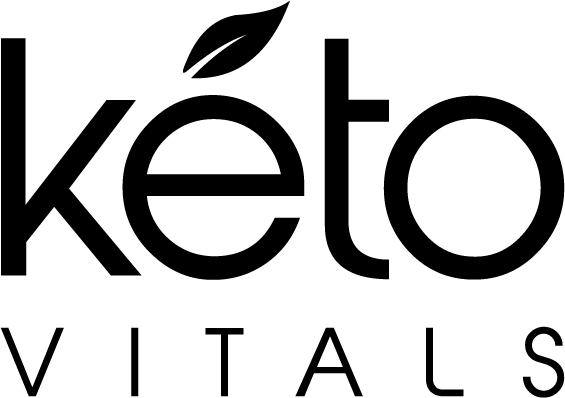Your food intake has a lot to do with your current health condition. At times, there are certain health issues that could be resolved simply by gradually adjusting one’s nutritional intake. Therefore, physicians and nutritionists are suggested to work together especially in cases involving nutrition-related cases.
Researchers and nutritionists continue to develop better ways of addressing certain nutrition-related problems more efficiently. The birth of Ketogenic Diet is practically based on this goal. Besides developing a diet designed to help individuals lose weight more effectively, it is also highlighting the need of individuals to become more serious about their goal of developing healthier eating habits that will take effect on their overall wellbeing.
In this post, some of the specific nutrients in the Keto diet shall be discussed along with how they impact not just how the body responds to the diet, but also the way that they benefit every individual who goes through the strict rules on food intake that keto diet imposes.
FIRST: While Other Diets Require No-Carbs, Keto Diet Requires Low-Carb
No-carb diets will make you feel like you have not eaten at all. It creates the worst effect and response among people who decide to start dieting for the first time. No-carb diet creates extensive longing for food. The hunger it creates often drives dieters to just quite early in the process.
This is what makes Keto-diet different. Instead of simply driving a person to his breaking point because of not taking in enough carbs. The low-carb diet suggested through keto makes it easier for the body to adjust which naturally results to reduced appetite.
Keto Diet highlights more on the cutting of carbs ad increasing protein and fat intake. With this adjustment, the body naturally reduces its desire for food.
TWO: Low-Carb versus Low-Fat diet
Low-carb diet pushes the body to get rid of the excess water. This lowers insulin levels. Therefore, this approach pushes for better and faster weight loss that usually presents results from the first to the second week of going through the intended diet schedule.
Instead of restricting fat intake, lower carb intake gives the body a better chance at losing two to three times faster without necessarily causing breakdowns that happens during low-fat diet.
THREE: Keto Diet Highlights Your Body’s Proper use of Fat
Subcutaneous fat is the type of fat that is stored under the skin.
Visceral fat is the type that lodges into vessels when it is not flushed out properly from the body. This is dangerous as it is often the cause of strokes and other cardiac emergencies.
Low-fat diets only get rid of the subcutaneous fat. Hence, when weight is seemingly lost, it’s only on the foreground. This means that such weight easily comes back once you develop a craving again.
On the other hand, the strict rules of Keto Diet make it possible for a person to develop a better eating culture that makes him aware of the nutrition that he takes in and the group of food that he controls to eat.
Given that Keto diet targets visceral body fat, it is not only a faster way of losing weight, it also offers a safer and healthier option of adjusting body mass.
Therefore, physicians who provide assistance and care for individuals suffering from heart disease and type 2 disease often suggest to their patients to go through a guided nutritional adjustment often involving the basic factors that make up the Keto diet.
- A Greater Proportion of Fat Loss Comes from Your Abdominal Cavity
Not all fat in your body is the same.
Where fat is stored determines how it affects your health and risk of disease.
The two main types are subcutaneous fat, which is under your skin, and visceral fat, which accumulates in your abdominal cavity and is typical for most overweight men.
Visceral fat tends to lodge around your organs. Excess visceral fat is associated with inflammation and insulin resistance — and may drive the metabolic dysfunction so common in the West today (8Trusted Source).
Low-carb diets are very effective at reducing this harmful abdominal fat. In fact, a greater proportion of the fat people lose on low-carb diets seems to come from the abdominal cavity (9Trusted Source).
Over time, this should lead to a drastically reduced risk of heart disease and type 2 diabetes.
- Increase Good HDL Cholesterol
HDL is High-density lipoprotein. It is also known as the good cholesterol. It basically lowers the risk of heart disease.
Often, low-carb diets include massive amount of good fat sources. Therefore, HDL level in your body increases dramatically. Keto diet is designed to provide individuals better nutritional source that is controlled in bringing the body into a metabolic state called ketosis whereas fat because the primary source of energy instead of carbs.
- Lower insulin and blood sugar levels
This is the primary reason why diabetes patient is recommended to adapt to ketogenic diet to aid in the process of lowering insulin and blood sugar levels in a rather natural manner.
Adapting to ketogenic diet has certainly affected how patients with diabetes reduce their insulin intakes generally up to 50% in a span of the first one to two weeks of adapting to the diet plan.
Physicians with the desire to give their patients a better sense of control on their condition often provide the suffering individuals with an option of lowering their insulin naturally which is affected by the occurrence of ketosis. If you have diabetes and you are thinking of engaging in keto diet, you ought to ask your physician first before you go through it. You might need a guided instruction on how to properly adapt to this form of diet. Every individual who has diabetes has a unique situation and is required to follow through a personal pattern of nutritional intake. The help of a nutritionist may be needed to outline the types of food that you may be allowed to take in during this time.
Those who have engaged successfully through this process of dietary adjustment have reported positive results especially in terms of restructuring how the patients take their medication. In many cases, keto diet has driven the insulin and blood sugar levels down to the point of reducing the medical intake of the patient from between 50 to 70 percent.
- Lower blood Pressure from Low-Carb Diet
High-blood pressure is affecting at least 75% of the population in the United States. The truth is, the age-range of those affected by this condition lowers each year. Today, as young as 15 years of age could already experience high blood pressure. Due to the many stresses that are brought on about by life itself along with the lifestyle that individuals are currently exposed to. This includes the food that they take in which usually involves the trendiest food menus including fast food.
Often, this condition elevates blood pressure which often results to further complications. Abating the situations that lead to high blood pressure is critical to saving lives of many individuals, both young and old.
Ketosis naturally helps in the process of managing blood cholesterol, therefore lowering blood pressure. As this happens, the body is also protected from developing any more complications related to high blood pressure.
- Avoiding Metabolic Syndrome
From abdominal obesity to elevated blood pressure, there are different factors that could identify the occurrence of metabolic syndrome. This condition increases your risk of developing diabetes and heart disease.
Ketosis, the manner by which food intake empowers metabolic response in the body can actually eliminate several factors of symptoms that results to metabolic syndrome.
Key Takeaways
The body’s metabolism is a process by which all useful nutrition are used up to the best benefit of the individuals. However, given the developing attitude of individuals to modern food menu available in the market, metabolism in the body is often disturbed by the excessive rate of fast-food intake that people are certainly taking in.
Low-carb, high-fat, high protein diet does create a better response to the issues that the body has to deal with to reach the goal of losing weight and keeping one’s health intact at the same time. This is how keto diet changes one individual at a time and creates healthier options of life through using the natural systems of the body in utilizing nutrition to fuel better function of the body.

